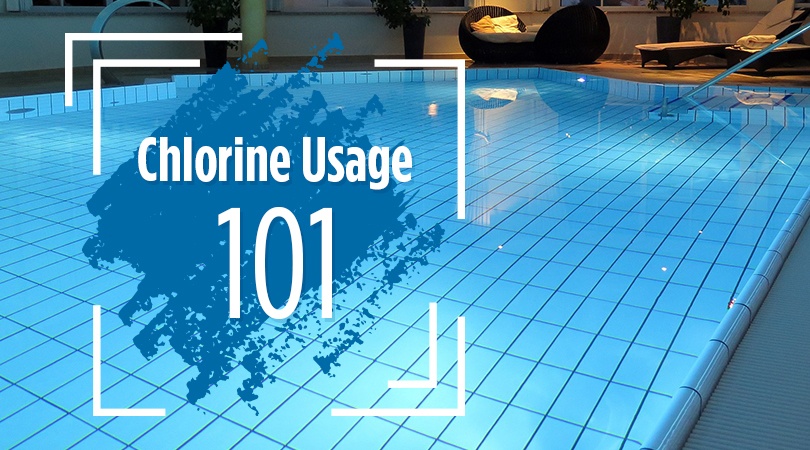
In the same way that we use bleach to keep our kitchen counters free from bacteria and our whites white, chlorine plays a vital role in keeping our swimming pools in prime condition. Chlorine is also a useful tool for proper pool maintenance. Let's take a look at the why, how and what of chlorine.
Chlorine has been around since the late 1700s and was first used in 1910 to sterilize a pool at Brown University. Since then chlorine has become the primary tool in pool water sanitation. It’s reasonably priced and easy to find, especially here in Central, FL.
Chlorine is the critical ingredient in keeping your swimming pool water clean and safe. It is a disinfectant and will kill the bacteria and algae in the pool water. Have you ever seen a pool with cloudy pool water? That is due to an improper pH level which is directly affected by chlorine. It’s also a sign of bacteria. One of the biggest swimming pool safety concerns is bacterial growth because it is harmful to humans causing a wide variety of health issues from ear infections to athlete's foot.
This is where it gets technical. Keeping your pH levels balanced is vital to keeping your pool safe. The amount of chlorine you need is dependent on the size of your pool and whether you have an indoor or an outdoor pool. The Association of Pool and Spa Professionals recommends that chlorine in pools is 2.0 ppm - 4.0 ppm (parts per million). Additionally, the ideal pH level is 7.4 - 7.6. Anything higher is too alkaline, and if it is lower, it is too acidic. Test your pH levels daily to ensure that the chlorine is working effectively.
Pool water that is too acidic can cause pool parts to rust and crack. To quickly get your chlorine levels back to the ideal level you will need to shock the water. Read more about safely shocking your swimming pool here.
There are three main types of chlorine for your pool: liquid; tablet; and granular. What kind you use will depend on your budget, manufacturer recommendations, and what you are most comfortable using.
Remember, chlorine is a chemical and needs to be handled appropriately. The American Chemistry Council has valuable free resources including a video on pool chemical safety.
Remember, improper use of chlorine can directly affect your pool pump and other pool parts causing them to wear down quicker and leak. Additionally, if you find that you are having a hard time keeping your pH balanced in your swimming pool, this could be a sign of a possible leak. Identifying and repairing a leak early can save you time and money. Contact Aquaman Leak Detection for all leak repairs. We service all of Florida.

With over 20 years of reputable experience finding leaks, owner Lowell Ball created a unique and patented leak detection system that accurately finds leaks without damaging property. We are so confident in our system and our workmanship, we offer the strongest warranty in the industry.
Aquaman Leak Detection Corporate
1275 South Patrick Dr, Suite A6
Satellite Beach, FL 32937
Owner Direct: 321.431.4784
844.766.5532 (844 POOL LEAK)
info@aquamanleakdetection.com
Office Hours:
9AM-6PM Mon-Fri
Emergency Service Available 24/7
Blog Comments